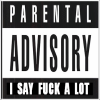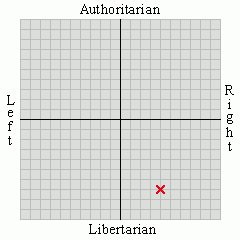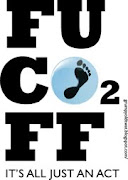Johann Hari, a multiple award winning political journalist who writes for newspapers around the world, was exposed after a reader noticed that a quote in one of his stories had been cut and pasted from a book.Ahahahahahahahahahaha.
Such was the controversy that he was forced to respond in a personal blog, but his defence only further fuelled the intensity of the attacks against him.Ahahahaha.
On Twitter, the micro-blogging website, users posted a series of jokes in which famous sayings in history were re-created as if Mr Hari had been told them in intimate interviews, while blogs from rival journalists accusing him of so-called "churnalism".Ahahaha? Bwahahahahahahahahahahahaha. Hooooo.
At one point his alleged plagiarism was the second most discussed topic on Twitter and even became the subject of a doctored clip from Downfall, a film about Adolf Hitler's final hours.
The backlash began when a left wing website analysed an interview Mr Hari conducted with Antonio Negri, an Italian Marxist, in 2004. The blog found that Mr Hari used a quote in the interview which appeared to have been taken from Negri on Negri, a book published a year earlier.Ahahahahahahahahahahahahahaohfuckithurtsnow.
[...]
The blog goes on reveal that a passage from pages 100 and 101 of the book is almost identical.
Brian Whelan, another blogger, subsequently found a further example in a 2010 interview by Mr Hari with the Israeli journalist Gideon Levy. He found a passage that appeared to be composed of sentences that had appeared in a column written by Levy the previous March.
[Hari] claimed that he had only used the quotes to make his interviewee appear more articulate, and said he had not received a complaint in a 10 years.Ahahahahahaha. Ahaha. Aha. Okay, I'll be okay. Heheheh.
He wrote: "So occasionally, at the point in the interview where the subject has expressed an idea, I’ve quoted the idea as they expressed it in writing, rather than how they expressed it in speech." However the response failed to dampen the backlash against him.
Last night the Media Standards Trust, which funds the Orwell prize, demanded an investigation to see whether he should be stripped of the award.And so the lesson is quote by all means - and I do it extensively myself - but be honest and open and fucking source it.* This seems to be pretty much par for the course in the blogosphere and I thought it was for the MSM too. Perhaps not so much anymore.
It said that the issue had "the potential to damage its reputation".
The organisers of the award said they were following a "process" normally carried out in "situation such as this".
UPDATE - can open, worms everywhere.
He also falsely claimed that none of his subjects had ever complained following the publication of one of his interviews. In fact, Noam Chomsky complained bitterly.
It now appears that Mr Hari has made quite a habit of pinching quotes given to other interviewers, and claiming that they were given to him.Admittedly I've not read a lot of his stuff and this may be miles off, but I've got the impression that if Hari caught a journo from the Wail or the Teletubbygraph or somewhere else in the non-lefty bit of the media he'd call them on it in a heartbeat.
UPDATE 2 - And he's now been Mashed.
The criticism came after Hari used a revolutionary new interview technique that involved pretending people had said things to him and then imagining what his reaction would have been if they had have said those things to him, which they did not and in fact said to somebody else years ago.Gold.
* Though I realise I may not be the first person to say that.


















